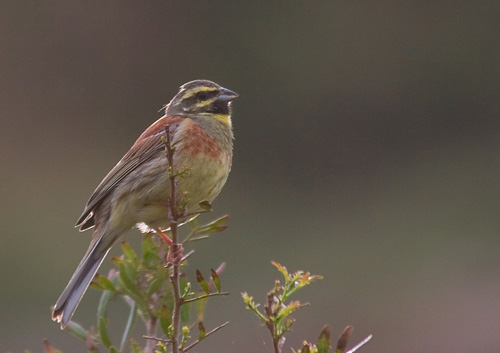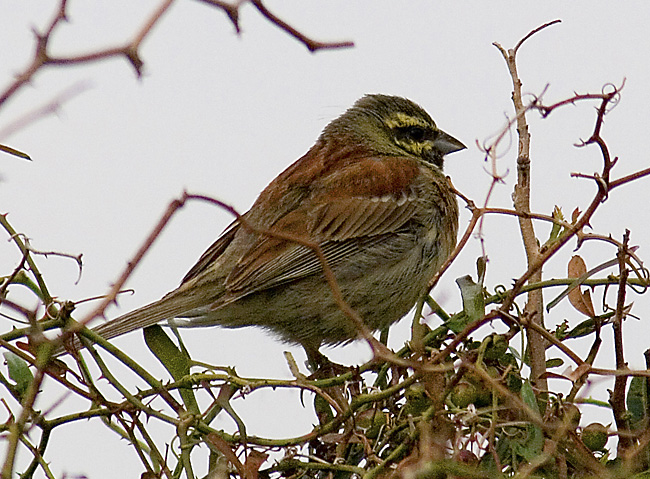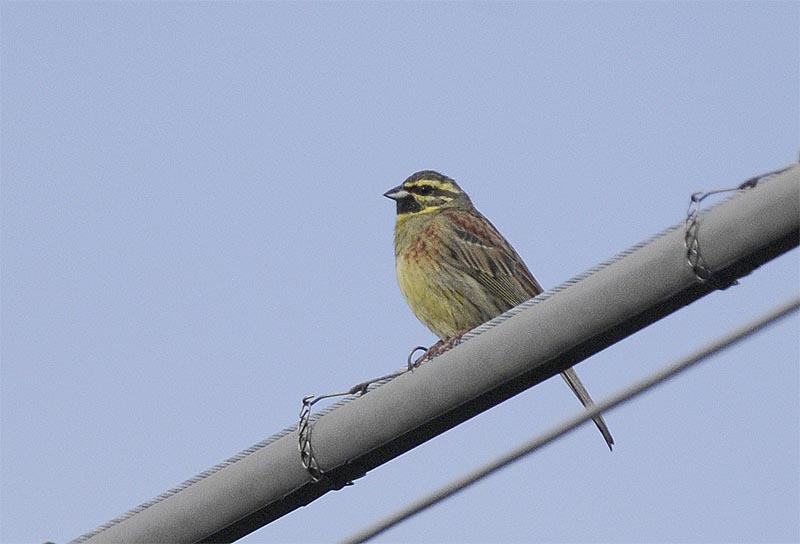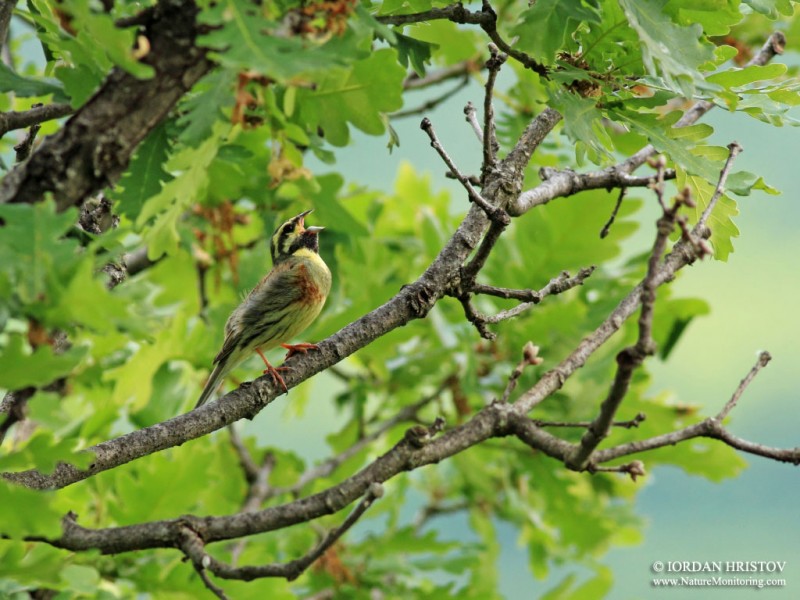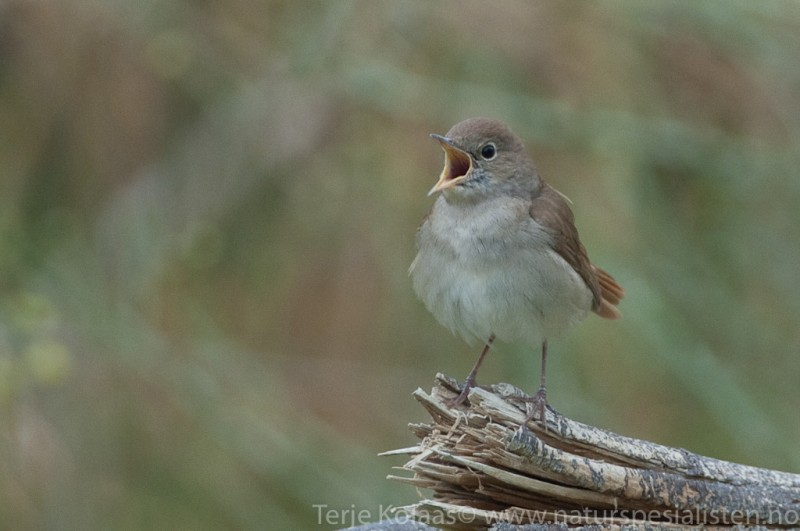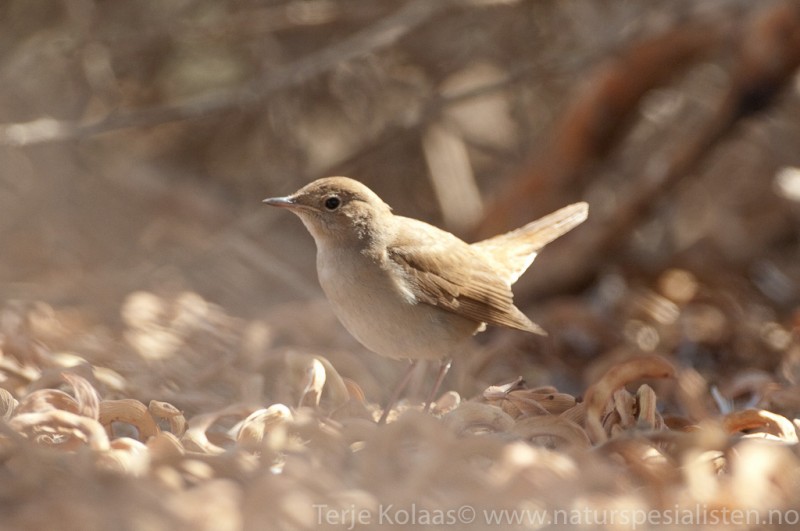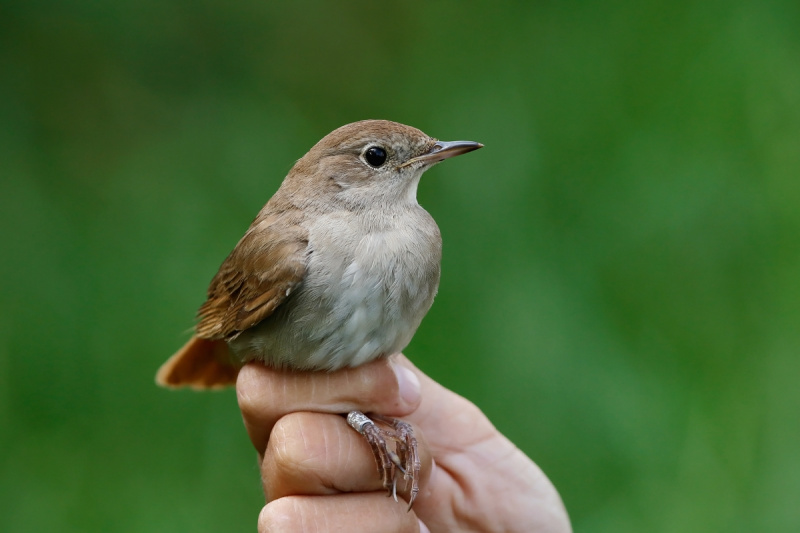Cirl Bunting (Emberiza cirlus)
Nightingale (Luscinia megarhynchos)
Slightly more compact than Yellowhammer, with shorter wings and heavier bill. In all plumages note; olive to grey rump, greyish lesser coverts and finely streaked flanks. Male unmistakable with black throat and eye-stripe. Female and immature lacks black throat, but have more contrasting eye- and moustache-stripe than Yellowhammer.
Sound:Song variable, but can generally be described as a Yellowhammer phrase with no ending, or an Arctic Warbler with bunting timbre. Tempo also variable, but rhythm always even. Alarm call a thin "tseeep", similar to Rock Bunting, but more drawn out.
Song:
Distribution:
Xeno-canto: map
Ecology:Birdlife ecology
Links:
Observation.org Latest observations
Image search Flickr NB! May give other species
CCCC-photo:janofonsagrada, Licence,Link.
CC-photo:fra298, Licence,Link.
Very similar to Thrush Nightingale. Anonymous, indistinct plumage and secretive behaviour makes it an easily overlooked bird (except when singing). Tail rufous brown, upperparts warm brown. Underparts buff and white. Throat without streaking. Tail more rufous, and contrasts less with the warm brown back, than in Thrush Nightingale. Overall a more smooth and clean appearance. Thrush-like behaviour despite the small size, with jumping gait, erect posture, raised tail and drooping wings.
Sound:Alarm call either a thin, flycatcher-like "weeet", or a Chiff-chaff-like "piuu". Also a characteristic (but similar to Thrush Nighitingale) dry, rattling, frog-like "rrrrr". The song is the best characteristic to separate it from T. Nightingale. It consists of extremely resonant, full-bodied notes and lacks the, dry, rolling, rattling sounds of T.N. Most distinct species specific sound is the interwoven series of slightly ascending, plaintive notes (0.04 - 0.10 in recording). May mimic Thrush Nightningale!
Song:
Distribution:
Xeno-canto: map
Ecology:Birdlife ecology
Links:
Observation.org Latest observations
Image search Flickr NB! May give other species
CC
 English
English Albanian
Albanian
 Armenian
Armenian
 Bulgarian
Bulgarian
 Catalan
Catalan
 Croatian
Croatian
 Czech
Czech
 Danish
Danish
 Dutch
Dutch
 Finnish
Finnish
 French
French
 Georgian
Georgian
 German
German
 Greek
Greek
 Hungarian
Hungarian
 Italian
Italian
 Latvian
Latvian
 Lithuanian
Lithuanian
 Macedonian
Macedonian
 Norwegian
Norwegian
 Polish
Polish
 Portuguese
Portuguese
 Romanian
Romanian
 Russian
Russian
 Sami : Lule sami
Sami : Lule sami
 Sami : North sami
Sami : North sami
 Sami : South sami
Sami : South sami
 Scientific names
Scientific names
 Serbian
Serbian
 Spanish
Spanish
 Swedish
Swedish
 Ukrainian
Ukrainian


